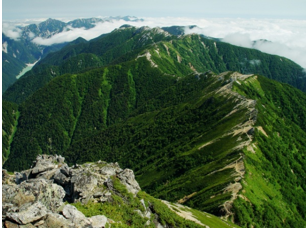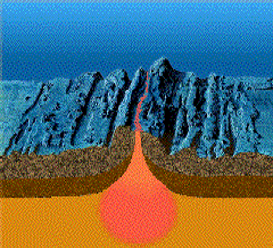Compare the distribution of oceans between the northern and southern hemispheres. Which hemisphere has more ocean surface area than the other?
Since the surface of the Earth is far from being even, the distribution of oceans is not quite equal between the two hemispheres. Taking a closer look at the map, one will see that the Southern Hemisphere (206 x 106 km2) has more water resources than the North one (154 x 106 km2) (Distribution of Water and Land Between Parallels para. 2).
What is sea ice? How does it affect the salinity of seawater?
Sea ice is traditionally defined as the solidification of seawater. It is remarkable that the sea water, containing considerably more minerals in it, has a slightly lower freezing point than regular water. While the latter freezes at 0° C, seawater solidifies at – 1.8° C (Lutgens and Tarbuck 289).
What is the thermocline?
A layer in the seawater mass, where a very rapid change from a relatively warm to an increasingly cold temperature can be observed is usually referred to as a thermocline (Lutgens and Tarbuck 292).
List three ways the ocean floor is mapped
There are three key ways to map the ocean floor, according to what Lutgens and Tarbuck (295) say. The first and the most common one presupposes the use of a multibeam sonar. The latter measures the seafloor depth by calculating the time that it takes for a sound wave to reach the bottom (Lutgens and Tarbuck 297). The next method involves the analysis of the data acquired from the satellite (i.e., satellite altimetry). Apart from the echosounder and the satellite, seismic reflections are also traditionally mentioned among the possible methods of bathymetry. The third method is somewhat underused; however, it can also be viewed as a possibility when the two ones mentioned above are unavailable.
Contrast passive and active continental margins. Give an example of each
When considering active and passive continental margins, one should bear in mind that they are the exact opposite of each other. Both being a part of continental plates, they differ only in their relation to the tectonic activity. Active continental margins are usually the location of the aforementioned tectonic activity. As a result, active continental plates are frequently found on the leading edge of the continent. Passive continental margins, on the contrary, are located along the coastlines. More to the point, the tectonic activity observed in the region is minor. Finally, passive continental margins are often prone to weathering and erosion (Lutgens and Tarbuck 303).
Why is the term “ocean ridge” misleading?
When hearing the word “ridge,” most people tend to picture a mountain ridge in their mind – a steep and a rather narrow one, as one is most likely to see in the mountains. As a result, the term “ocean ridge” may be quite misleading for people who have never heard of an ocean ridge before. Unlike a mountain ridge, an ocean ridge is neither steep nor narrow.
How are seafloor sediments used to study the earth’s climate history?
Studying the history of the Earth’s climate means analyzing the archaeological traces that the previous eras have left; and nowhere is the search for these traces is as efficient as it is in the ocean. Despite the changes that the underwater currents inflict onto the landscape of the underwater world, the alterations are still too minor to stand in the way of the research of the past. Besides, with the modern sub-bottom profiling systems, the analysis of the sediments has become considerably easier (Lutgens and Tarbuck 307).
Works Cited
Distribution of Water and Land Between Parallels. n. d. Web.
Lutgens, Frederick K. and Edward J.Tarbuck. “Geologic Time.” Foundations of Earth Science. 7th Edition. Prentice Hall. 2014. 285–310. Print.
Mountain Ridge. n. d. Web.
Sea Ridge. n. d. Web.

